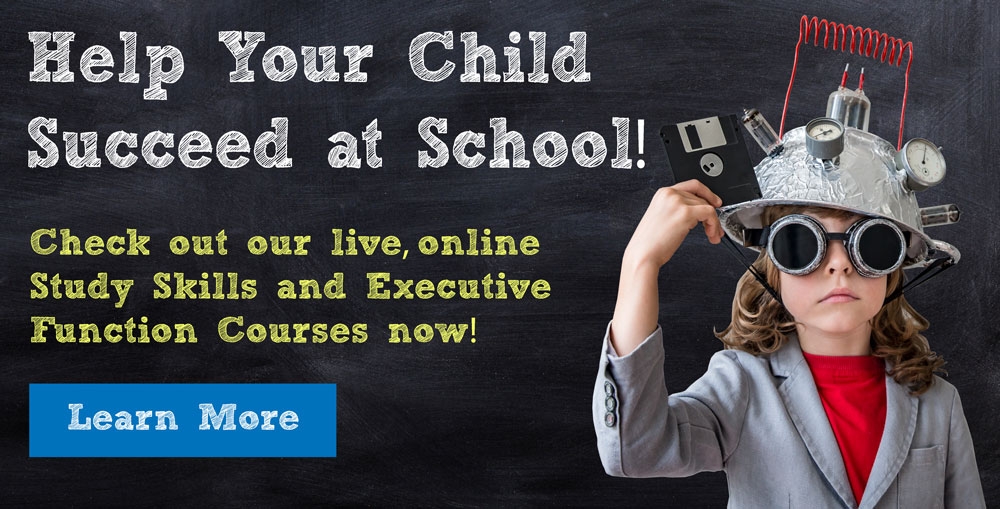Olivia’s parents recently took her to a doctor of neuropsychology, who diagnosed her with Attention-Deficit/Hyperactivity Disorder (ADHD). Olivia has been struggling to reach her full potential in school, and her teachers often describe her as chatty and overly friendly. This has caused Olivia to feel frustrated with herself due to her inability to complete her schoolwork efficiently and on time. Olivia began to worry that something was wrong with her and her parents were concerned that this negative self-perception would persist once she received her diagnosis. They considered how best to talk to Olivia about her diagnosis in a way that would help her understand what ADHD means in a way that she can comprehend and how it affects her, without reinforcing her negative self-thinking.
Figuring out how to discuss an ADHD diagnosis with a child that has just been diagnosed is an incredibly challenging taks for parents. By the time children get diagnosed, they usually already have some awareness of their struggles and sense that something isn’t quite “right.” They have likely experienced concentration problems at school, difficulty following directions, and/or received negative feedback about their behavior. Additionally, many children recently diagnosed with ADHD have undergone some type of psychological assessment or have at least seen their parents discussing concerns with their pediatrician. Therefore, it is usually not a surprise to children that something is going on. However, it is helpful for parents to have well-defined approaches for discussing ADHD with their children before they receive the diagnosis.
The way that parents frame their child’s ADHD diagnosis in conversation can significantly impact the child’s response to this knowledge, as well as their conceptualization of who they are. For some children, the diagnosis may provide an explanation for why certain situations are challenging for them and help them recognize what they need to do to improve. While open communication about ADHD is generally helpful, for some children, it might reinforce negative self-perceptions or be used as a justification or rationalization for their actions instead of encouraging them to improve those parts.
Some parents choose not to inform their child of the diagnosis, instead providing interventions at school and medication at home without explanation. However, children notice when they are doing things differently from their peers. Many mental health professionals, such as child psychologists, strongly believe that withholding information does not help but rather confuses the child. Providing an age-appropriate explanation of ADHD is more beneficial for both you and your child.
Since these children are likely familiar with the term “ADHD” being associated with them, it’s generally better to be transparent about what these symptoms are called. Children often understand more than we realize. Providing them with a basic understanding of ADHD can help prevent confusion and alleviate fears that ADHD is something more severe than it is. Additionally, it’s recommended to focus on the symptoms your child may be experiencing, such as a short attention span, fidgetiness, or difficulty following directions, rather than emphasizing the label “ADHD.”
As a general strategy, a multi-step approach over time can help your child better understand their ADHD. Initially, a small meeting involving the child, parents, and the diagnosing pediatrician or psychologist can be very beneficial. Following this, offering the child information about ADHD through books, videos, podcasts, or interactions with friends or family members who have ADHD can be useful. Numerous resources are available across various platforms. At South County Child and Family Consultants, we compile lists of books for children and teens diagnosed with anxiety, depression, ADHD, and more. This link leads to an article about books for children and teens with ADHD. Another valuable resource is the Learning Works LIVE program, which helps children develop their executive functioning skills through gameplay with peers. Additionally, clear explanations of strategies such as 504 plans at school, home tutoring, or the use of medication or exercise should be provided. Encouraging questions is also crucial in helping children feel that their ADHD diagnosis is neither a secret nor a problem.

In addition to the points mentioned above, here are five strategies for discussing ADHD with your child:
- Be Honest and Transparent: Don’t shy away from using terms like ADHD or Attention-Deficit/Hyperactive Disorder. If your child is on medication, share the name of the medication and learn enough about it to explain how and why it works, even if your child can’t pronounce it. This openness helps clarify the condition and treatment, making it less intimidating for your child. Additionally, being transparent fosters trust and encourages your child to ask questions and express their feelings about their diagnosis and treatment.
- Normalize ADHD: Help your child understand that ADHD is common and that others in the family or community may also have it. Highlight that many people exhibit ADHD symptoms and lead perfectly normal lives. It can be helpful to mention classmates, family members, or famous individuals with ADHD. For instance, if your child is interested in sports, you could talk about athletes like Michael Phelps and Simone Biles, who have ADHD but still excel in their fields. Sharing these examples can help your child see that ADHD does not define their potential or limit their achievements.
- Use Age-Appropriate Language: While openness is important, too much information can be overwhelming. Gauge your child’s ability to understand what you’re sharing. If unsure, keep explanations simple and listen for follow-up questions. Similar to discussing other complex topics like death, sexuality, or illness, be mindful of how you talk about ADHD and how much you talk about it. Tailor your language to their developmental level, using analogies or stories they can relate to, and ensure they feel comfortable asking questions at any time.
- Promote a Growth Mindset: Explain ADHD within the framework of a growth mindset, which believes that abilities can be developed through dedication and hard work, as opposed to a fixed mindset that sees abilities as static. Encourage your child to understand that, despite attention challenges, they can achieve success through effort and persistence. Be realistic about the difficulties ADHD may present, but also emphasize that these challenges can be overcome.
- Foster an Environment for Open Discussion: After the initial conversation about the ADHD diagnosis, continue to bring it up in the future. Encourage questions and provide feedback. Acknowledge and praise your child’s efforts to manage their ADHD symptoms and overcome any related challenges. Create a safe space where your child feels comfortable sharing their experiences and feelings, and reassure them that it’s okay to talk about their struggles and successes. Regularly check in with them to see how they’re doing and to offer support and guidance as needed.
For those seeking additional support and resources, South County Child and Family Consultants offer a wealth of information and expertise on ADHD. By visiting their website, you can access a curated selection of books and materials, connect with knowledgeable specialists, and find tailored advice to help you or your teen navigate the complexities of ADHD. Whether you’re looking for strategies to improve daily life, educational accommodations, or simply to understand ADHD better, South County Child and Family Consultants is an invaluable resource for empowering individuals and families affected by ADHD.
Receive online class information and helpful tips from Dr. Randy Kulman's LearningWorks for Kids |




